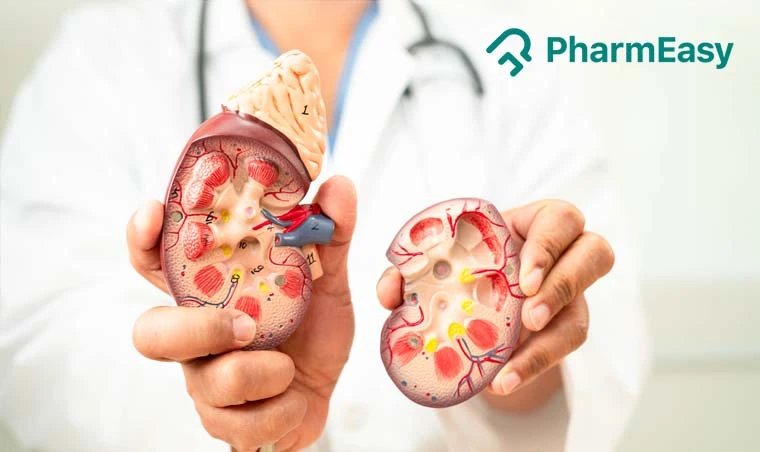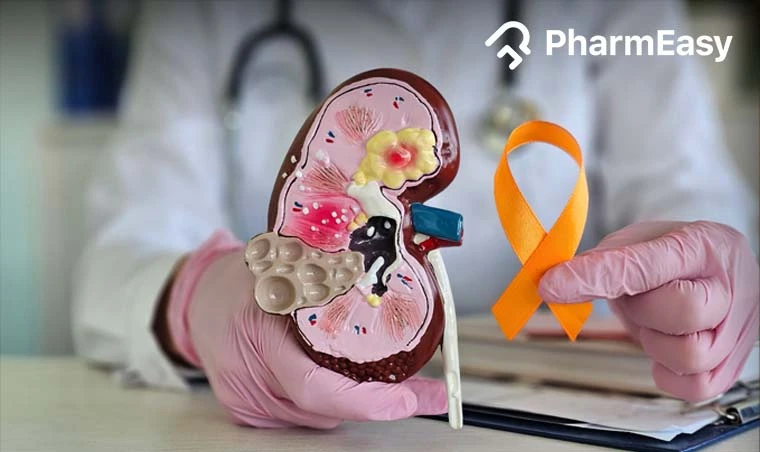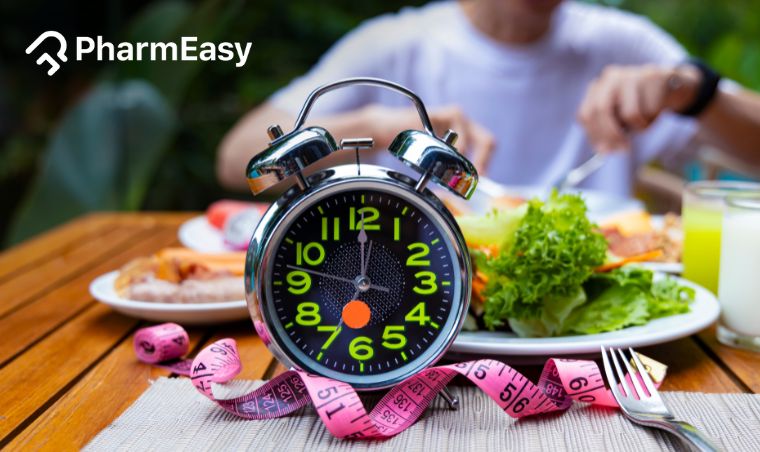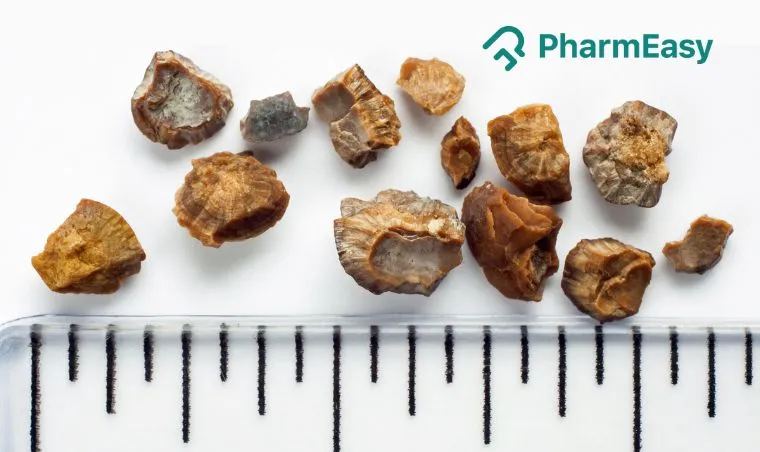Quiklor 4mg Tablets
Description
Quiklor 4mg tablets contain inositol nicotinate as the active ingredient. Inositol nicotinate is degraded into inositol and niacin in our body. Inositol helps in dilating the blood vessels. Hence it
treats intermittent claudication and Raynaud's syndrome. Niacin decreases cholesterol and lipid levels in the blood. It inhibits the formation of triglycerides and very-low-density lipoproteins. The most common side effects of Quiklor 4mg tablets are nausea, stomach ache, constipation, and jaundice. Although most of the side effects are mild, you should inform your doctor if these side effects bother you. Apart from taking this medicine, you should exercise regularly, maintain a healthy diet, and quit smoking and alcohol. Before taking Quiklor 4mg tablets, you should inform your doctor about any pre-existing kidney, liver, or gallbladder disease that you may suffer from. You must inform your doctor if you have stomach ulcers, as Quiklor 4mg tablets can increase the chances of bleeding. You should also mention all the medicines you are taking. Pregnancy and breastfeeding should be avoided while taking Quiklor 4mg tablets. The dose of the medicine is decided after evaluating the lipid levels in your blood, your response to the medicine, and the side effects you face after taking the medicine.
Product Summary
| Offer Price | ₹81.75 |
| You Save | ₹27.25 (25% on MRP) |
| Contains | |
| Uses | High cholesterol levels, Raynaud syndrome, Intermittent claudication |
| Side effects | Nausea, Vomiting, Bloating, Stomach ache, Jaundice |
Uses
- Quiklor 4mg tablets have the following side effects:
- Treatment of high cholesterol levels in the blood
- Treatment of intermittent claudication
- Treatment of Raynaud syndrome
Contraindications
- Quiklor 4mg tablets are contraindicated in the following cases:
- If you have shown an allergic reaction to the medicine in the past
- If you have pre-existing liver diseases as the medicine is metabolised in the liver
- If you are a chronic alcoholic, consumption of alcohol after taking Quiklor 4mg tablets can cause damage to the liver
- If you have stomach ulcers, as the chances of bleeding increases
- If you have heart disease and low blood pressure
- If you have joint pain and muscle ache as these symptoms can worsen after taking the medicine
- If you have thyroid disease
- If you are pregnant and breastfeeding
- If you have diseases related to the gallbladder
- If you have diabetes
- If you have pre-existing kidney diseases as the medicine is excreted out through urine
Side effects
- Quiklor 4mg tablets have the following side effects:
- Nausea
- Bloating
- Stomach ache
- Irregular bowel movement
- Jaundice
Precautions and Warnings
Pregnancy
Breast Feeding
Driving
Alcohol
Other General Warnings
- You should not take Quiklor 4mg tablets if you are allergic to them.
- You should inform your doctor about the health conditions you suffer from and the medicines you take to prevent any potential adverse reactions.
- You should not take a Quiklor 4mg tablet if you have any disease related to the liver, as the medicine is metabolised in the liver. Liver function tests should be done at regular intervals to assess the function of the liver....
- You have pre-existing kidney disease. You should not take Quiklor 4mg tablets as it can increase the severity of side effects like hyperuricemia and hyperuricosuria.
- You have any gallbladder disease, inform your doctor before taking Quiklor 4mg tablets.
- You should not take Quiklor 4mg tablets if you are pregnant or breastfeeding.
- You have to undergo surgery and inform the surgeon about Quiklor 4mg tablets before surgery.
- You should inform your doctor about any muscle pain or joint pain you suffer from before taking the Quiklor 4mg tablet, as these symptoms can worsen after taking the medicine.
- You should inform your doctor if you have stomach ulcers, as Quiklor 4mg tablets can increase the chances of bleeding.
Mode of Action
How Does It Work?
Directions for Use
- Take Quiklor 4 mg tablets after meals or milk to avoid adverse effects.
- Take the medicine with a glass of water and swallow it.
- Do not break or crush the medicine before consumption.
- Do not change the dosage time of this medicine.
- Take the medicine at a dose and for a duration as prescribed by your doctor.
- Consult your doctor if you experience any side effects.
- Make sure that the treatment is complete.
- Do not discontinue the medicine without consulting the doctor.
Interactions
Interactions with other medicines
- Oral hypoglycemic medicines like acarbose should not be combined with Quiklor 4mg tablets as the combination can decrease the efficacy of oral hypoglycemic medicines.
- Anticoagulants like warfarin should not be consumed with Quiklor 4mg tablets as the chances of bleeding increase.
- Anticancer medicines like cyclosporine should not be consumed with Quiklor 4mg tablets as the serum concentration of the anticancer medicines increases in Quiklor 4mg tablets.
- Antacid suspension like magnesium and aluminium decreases the absorption rate of Quiklor 4mg tablets.
Interactions with food items
- There are no other notable interactions with any food.
Storage and disposal
Dosage
Overdose
Missed a Dose
Content Details
Dr Tuhina Mishra
MBBS
Dr. Jagruti Jain
MBBS, MD, DNB, General Medicine
Frequently Asked Questions (FAQs)
Q: What should I do to avoid nausea and vomiting after taking Quiklor 4mg tablets?
Q: When can I stop taking Quiklor 4mg tablets?
Q: Do Quiklor 4mg tablets cause an increase in uric acid levels?
References
- European Food Safety Authority (EFSA). Inositol hexanicotinate (inositol hexaniacinate) as a source of niacin (vitamin B3) added for nutritional purposes in food supplements: Inositol hexanicotinate (inositol hexaniacinate) as a source of niacin (vitamin B3) added for nutritional purposes in food supplements. EFSA j [Internet]. 7(2):949. 2009 [cited 28 Mar 2022]. Available from:
- Keenan JM. Wax-matrix extended-release niacin vs inositol hexanicotinate: a comparison of wax-matrix, extended-release niacin to inositol hexanicotinate “no-flush” niacin in persons with mild to moderate dyslipidemia. J Clin Lipidol [Internet]. 7(1):14–23. 2013 [cited 28 Mar 2022] Available from:
Did you find this medicine information helpful?
Please rate your experience



















